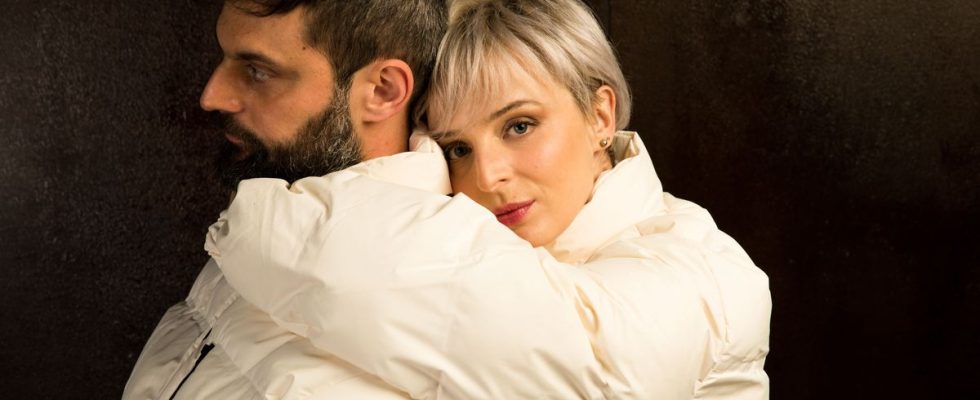“We are born alone, we live alone and we die alone”, said Orson Welles. This fatalistic sentence has remained famous but posterity has forgotten that the American director had added: “It is only through love and friendship that we can create the momentary illusion that we are not alone. This could sum up the project of Emilie Satt and Jean-Karl Lucas, alias Madame Monsieur, whose third album, entitled Entangling our lonelinesscomes out this Friday.
The duo, who form a couple in the city, have, for certain songs, drawn their inspiration from current events (News from Taniaabout a Ukrainian fan in her country at war) or in the cinema (Pupilimagined after watching the film of the same title), but the majority of the texts of his new opus, dressed in refined pop orchestrations, reveal a part of his intimacy.
“This album is completely us”
“People will discover us differently. We wanted to show people who we really are. This music corresponds more to who we are today, to our age, to our aspirations. This album is completely us,” says Jean-Karl Lucas to 20 minutes.
“We’ve been talking in ‘we’ for ten years, it was time to talk in ‘I'”, engages Emilie Satt who now uses – and it was unheard of until then – the first person singular to talk about herself in the lyrics of her songs. “I feel that I’m disappointing her, the little girl of old. But I don’t know how to tell her when, how, why I planted her,” she sings in Where are the dreams going?, the opening track. “What could I say, now that I’m a mom and she’s the tortured artist far away?” she wonders in ladies states. “I have crises of faith in myself. Paranoid tendency. The next day I compare myself to Victor Hugo, ”she confesses in Still happy.
“What she wrote there, she would not have written five years ago, now she allows herself to do so, points out Jean-Karl Lucas. People, including our own family members, will learn a lot about us. The duo explains that the post-containment period and its installation in the Oise countryside are not unrelated to this exercise in deep introspection. “We found ourselves a little with ourselves,” says Emilie Satt. We had things to say, we wondered what it meant to be human, what emotional stuff we are made of. It translated into songs. »
Not “just a diary”
The collector’s edition of the album comes with an 80-page book, bringing together the lyrics of the songs, texts full of confidences, as well as personal photos. The two artists talk about each other. It is about their meeting, fifteen years ago, in the 18th arrondissement of Paris, at La Divette, a bar which is now closed but where they have kept the high table witness to their very first discussion. He talks about the hermetic bubble in which he locks himself up when he composes. She confides, among other things, her doubts of insomnia. These very personal lines illuminate the lyrics of the songs.
“We had never really taken the time to take a step back from what we have done in recent years, explains Jean-Karl Lucas. Eurovision madness [en 2018], media coverage, the birth of our son… We wanted to take a break and talk about what we felt, what we experienced. There is an analytical side, but these are not songs we made for us. »
“People must not imagine that they are just going to read our diary,” insists Emilie Satt. The book also opens with this sentence: “And because you are like me, you will recognize yourself. “People tell us that our songs accompany them in their lives because they find themselves in what we can say,” says Jean-Karl Lucas. They say that we manage to formulate things in a positive, simple, unadorned way. We are no different from the others, we just happen to be on the front of the stage, otherwise, we are Mrs. Mr. Everybody. »

